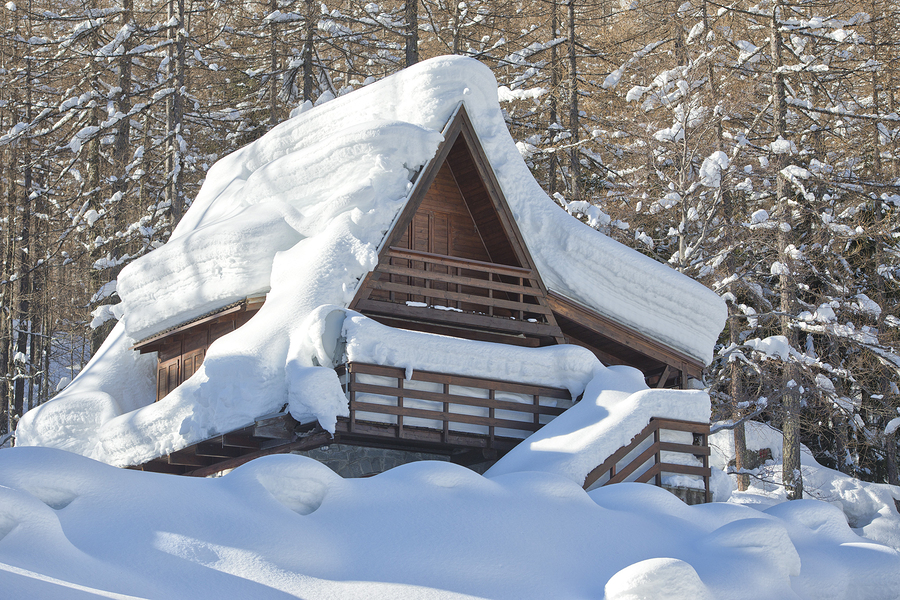Snow may be beautiful, but it can also be a highly destructive force of nature that can wreak havoc on your home, crushing your roof, knocking down trees, and clogging your gutters. If you have damage from the weight of snow and ice, you may be wondering what your insurance company will cover.
Roofs are built to be sturdy, and most in the U.S. can withstand 20 pounds per square foot of snow; if you live in a region that has heavy snow every year, it may be even stronger. This equals out to about four inches of solid ice, four feet of fresh powder, and one or two feet of packed snow. When it gets too heavy, cracks may begin forming in your walls or ceiling, and it may even cause your roof to collapse. Depending on the severity of the collapse and how much water gets into the home following it, you might be looking at paying tens of thousands of dollars for repairs.
What Will My Insurance Cover?
While it is not covered under the basic form insurance policies in most areas, you can usually get it added in. You can usually find what they may or may not cover in these frosty circumstances listed under “perils” in your policy. However, even if you do have insurance to protect against these, your insurance may have exceptions to what they will cover, which usually includes things like fences, foundation, retaining walls, pools, patios, canopies, and decks, among other things.
Oftentimes, even when your insurance covers damages from snow and ice weight, if there is no physical downward movement in the roof, they may not cover it; the weakening of structural supports is often not enough for an insurance claim. Sometimes insurance coverage will not kick in unless there is interior damage caused.
Documentation
Document everything in these cases. When you call your insurance company, write down the date and time of the call, along with who you spoke to, and any information pertinent to the claim. Take photos and videos of the damage and all repairs and cleanup along the way.
When you file an insurance claim after your roof has collapsed or sustained damage from snow and ice, your insurance company will look at several things before they decide what to pay. This includes the age and condition of your roof, if it has been well maintained, and even how well the gutters worked. The best way to mitigate that is to keep records of your roof maintenance to show them how often it was maintained, repaired, and/or replaced. If you know a bad winter storm is supposed to be blowing in, take some photos of your roof beforehand, so the insurance claims adjuster can see the condition of the roof before the snow and ice damaged it.




 Storm Damage
Storm Damage  Property Damage
Property Damage Appraisal Services
Appraisal Services Contact Us
Contact Us




.jpg)
 claims@ucspa.com
claims@ucspa.com Mon-Fri: 9:00am-5:00pm
Mon-Fri: 9:00am-5:00pm